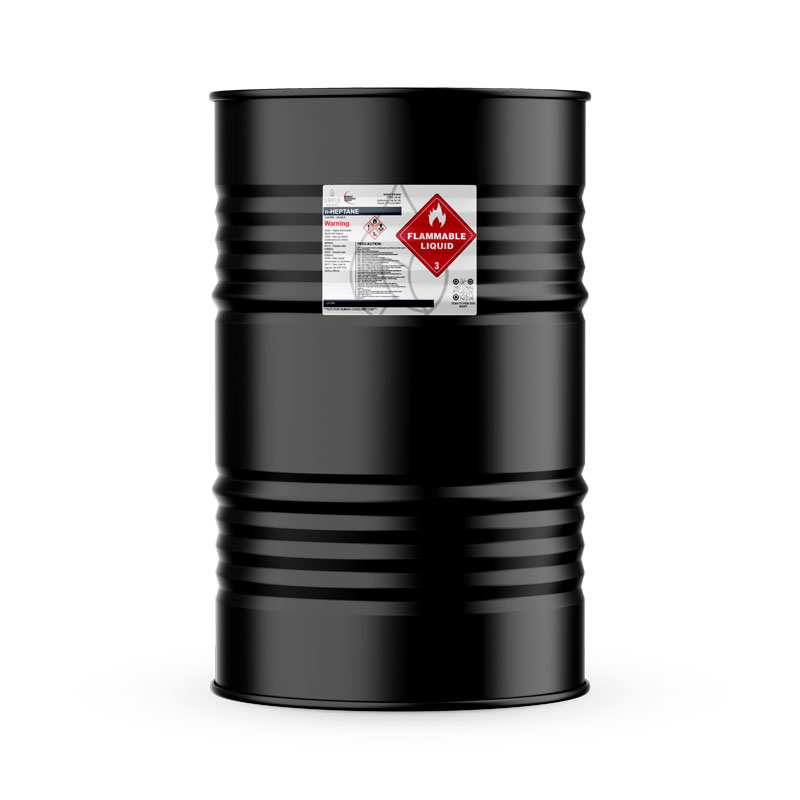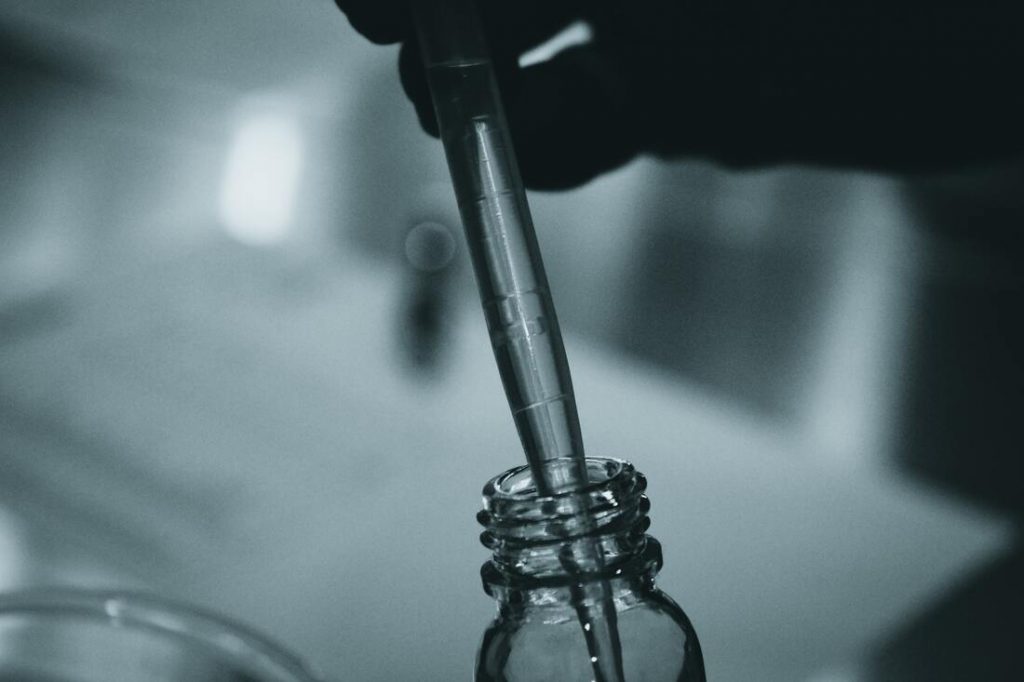N-Heptane vs N-Pentane
N-Heptane vs N-Pentane. You’re uncertain, aren’t you? We will help you understand the differences between N-heptane and N-pentane. The solvents are complex, and you don’t want to spend money on the wrong product. But don’t worry, we will make it simple.
Below, you’ll learn what those non-polar solvents are and how you can use and handle them. Let’s dive in.
What are Non-polar Solvents?
Laboratory and industrial experts use heptane or pentane to extract or purify non-polar substances like oils or fats. The liquids are volatile; they cool below 0°C and boil under 100°C. Hence, you’ll separate them from your desired samples easily during purification.
What is N-heptane?
N- heptane is a straight-chain isomer from heptane; hence, the solvent’s purer form. You’ll recognize that product as a clear liquid with a strong gasoline scent. Manufacturers extract the solution from crude oil.
Scientists need that product to maintain high accuracy in all their chemical reactions. Also, artists, home crafters and architects use n-heptane paints or varnishes in their work. So, you might find the solvent at home, in pharmaceutical and construction companies, or laboratories.

What are the Properties of N-heptane?
Low DensityThe solvent has a 684 kg/m³ density. That property makes N-heptane less dense than water.
Low Solubility in Water
N-heptane solubilizes in water at a rate of 0.003% at 25°C, and water mixes with N-heptane at 0.01% at the same temperature.
Low Volatility Energy companies use heptane to make high-energy fuels for vehicles. That utility is because heptane evaporates slowly from the fuel, and thus, the solvent improves gasoline’s efficiency in engines. Low Toxicity N-heptane is lesser toxic than other polar solvents. But the product can still cause neurotoxic symptoms such as hallucinations, dizziness and temporary paralysis.
Benefits of N-heptane Laboratory Use
The solvent makes your laboratory procedures efficient and contaminant-free without altering precision. Hence, scientists and student researchers use N-heptane as a reagent or catalyst for chemical reactions.
For example, you can use the solution to separate bromine from iodine. Those chemicals have a brown colour in water. Thus, iodine turns purple in the non-polar solution while bromine keeps its brown colour.
Making m-RNA Vaccines
Recently, scientists have been using N-heptane to make COVID-19 m-RNA vaccines safe for humans. That benefit occurs through the anion exchange purification technique. Thus, you remove impurities such as dsRNA, uncapped RNA and DNA-RNA hybrids.
Making Ink Products
Ink manufacturers use N-heptane to give their products a glossy, durable characteristic, attractive to customers.
First, because that solvent has a high solubility within additives and colourants in ink, also, the liquid has a slow evaporation rate. So, you’ll find that companies make printing, stamping and pen inks with the non-polar solution.
Making Anesthesia for Hospitals
Anaesthesia reduces the pain in patients undergoing surgical operations by making them unconscious. Hence, drug companies make those numbing drugs with N-heptane.
Extracting Essential Oils
Processors use N-heptane for extracting the oil because the solvent is cheap and effective at producing a high yield. That liquid is also environmentally friendly. Examples of oils you can get with the product are olive and corn oil.
Gasoline Rating
Fuel companies use the product as a standard for rating fuel quality. That utility happens through the low octane levels you’ll find in N-heptane.
You can thus gauge the best fuel for your car by opting for anything above the polar solvent’s octane content. Higher octane ratings ensure your engine runs smoothly by providing anti-knocking properties.
Additional Uses
You can also use N-heptane to make paint coatings, stove fuel and rubber cement. But handle the product in a well-ventilated area and away from direct flames, as it is highly flammable.
What is N-pentane?
N-pentane is one of the three pentane isomers, and the other two forms include cyclopentane and isopentane. You’ll extract the solvent from crude oil or during gas production. Hence, the product has a gasoline odor.
The colorless solvent is non-toxic and more effective in refrigeration. Thus, manufacturers prefer using N-pentane for freezing instead of ammonia or fluorinated hydrocarbons. The neurotoxicity of npentane is serious as well.
You’ll find the liquid in plastic manufacturing companies and scientific laboratories.
Benefits of N-pentane
Beauty ProductsGood beauty companies use N-pentane to make their product’s ingredients more effective. Also, those industrialists add glycerin and aromas, thus protecting your skin and giving it a delightful scent. So, you’ll find N-heptane based items such as shower gels and shaving creams.
Making Insulators
N-pentane is effective in making insulators. Also, the product’s effectiveness results from the residue the liquid leaves in polyurethane and polyisocyanurate foams. So, for instance, electricians make cooling devices and insulation boards using the solvent.
Food manufacturers make polyethylene material for packaging chips using N-pentane. The solvent thus acts as an agent for blowing polymer glutamate when making Extruded Polystyrene (XPS).
Plastic Manufacturing
N-pentane helps companies save on production costs because you can recycle the liquid.
Do you see the plastic household items you use?
Manufacturers make those products from N-pentane. The solvent provides that utility by acting as a cooling agent in making polyethylene and polypropylene plastic raw materials.
N-pentane enhances the formation of beads and prevents the plastic from sticking to the processing machines. Those industrialists thus use the liquid to cool ethylene after the gas phase.
Laboratory Use
Chemists use the solvent to extract, dilute or dissolve non-polar substances and alkyl ethers. Also, N-pentane allows for easy separation because of its volatile nature. Thus, you’ll maintain high purity standards on all your procedures.
The solvent is also a valuable reagent in the chromatography process. Thus, scientists can separate mixtures with different velocities. N-pentane is the mobile phase of those procedures.

Additional Uses
Other uses include making paint and coatings, foam, insecticides, and automotive appliances. Store the solvent in well-ventilated areas and away from direct flames as it’s highly flammable.
Conclusion
N-heptane and N-pentane are versatile non-polar solvents with wide industrial and laboratory uses. Thus, you’ll find that gasoline companies use n-heptane to rate gasoline types. Also, laboratories and drug industries use the solvent as a reagent, e.g., in making m-RNA vaccines.
Beauty companies use N-pentane to increase their product’s quality. In comparison, household appliance industries use the solvent to make plastics and insulators. And laboratories use the liquid for mixture separation using the chromatography method.

